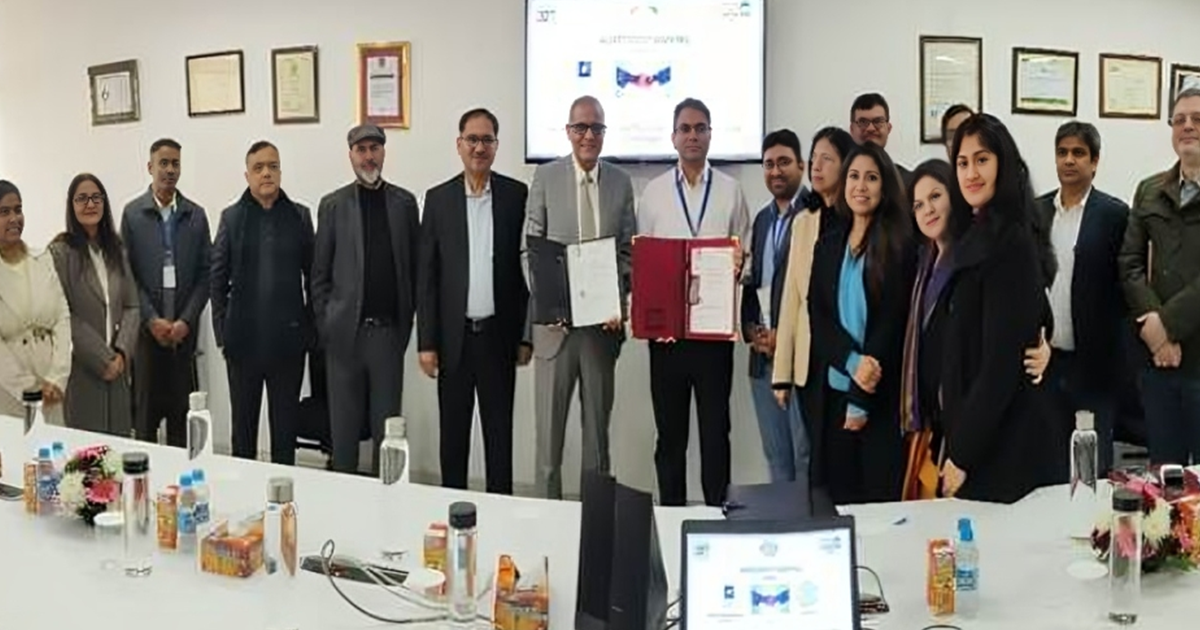C-DOT, IIT Roorkee to jointly develop 140GHz transreceiver module for 6G
13 Feb 2024

C-DOT, the premier R&D centre of the Department of Telecommunications (DoT), and Indian Institute of Technology, Roorkee (IIT-R) have signed an agreement for developing a 140GHz fully integrated transmitter and receiver module, to usher in indigenous technology that would facilitate deployment of 6G services and other new age telecom services in the country.
The agreement, backed by the Telecom Technology Development Fund (TTDF) scheme of Department of Telecommunications, is in line with the government’s policy of developing an indigenous 6G ecosystem.
TTEF provides financial support to domestic companies and institutions involved in design, development and commercialisation of telecommunication products and solutions, so as to enable affordable broadband and mobile services in rural and remote areas.
"The objective of this agreement is to develop a 140 GHz fully integrated transmitter and receiver module to enable applications for 6G and beyond. The novelty of this system lies in generation, transmission and antenna integration of THz waves onto a single chip; leading to reduced system size, weight and power consumption, making it suitable for use in portable devices such as smartphones, laptops, wearables etc. This chip shall support data rates of up to several gigabits per second, enabling high speed data transfer with a chip or between chips," says a DoT release.
IIT Roorkee representatives said they are fully committed to developing next-generation communication technologies in line with the prime minister's vision of Viksit Bharat@2047 and also thanked C-DOT for collaborative research that would promote development of cutting-edge research capabilities and infrastructure in the telecom sector.
“This technology developed on a single chip will lead to considerable reduction in system size, weight and power consumption, hence making it suitable for use in 6G devices. It will pave the way for building home-grown 6G solutions/applications with ultra-low latency,” Rajkumar Upadhyay, CEO of C-DOT, said, even as he highlighted the key role of indigenously designed and developed 6G technologies in realising the overarching objective of ‘Bharat 6G Mission’.
C-DOT and IIT-Roorkee expect the project to contribute hugely to the development of next generation ultra-fast, low-latency 6G networks further contributing to a new industrial revolution.
Scientists and engineers in the field of telecommunications the world over are working on the technologies for use in sixth generation (6G) networks. In fact, scientists at Tokyo Tech have reported a new transceiver design that is capable of both transmission and reception at frequencies over 100 GHz and at 112 Gb/s data rate.
By effective use of frequency distribution architecture, which suppresses the self-interference caused by the transmission signal leaking into the receiver, the transreceiver reaches unprecedented data rates of over 100 gigabits per second (Gb/s, while maintaining its ultra compact size.
A full-duplex 6G architecture, operating at sub-THz frequencies from 88 to 136 GHz, would support extremely low latencies for applications such as autonomous cars and virtual reality.



















